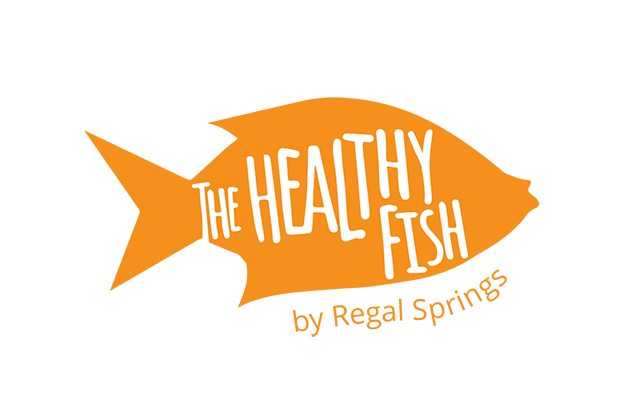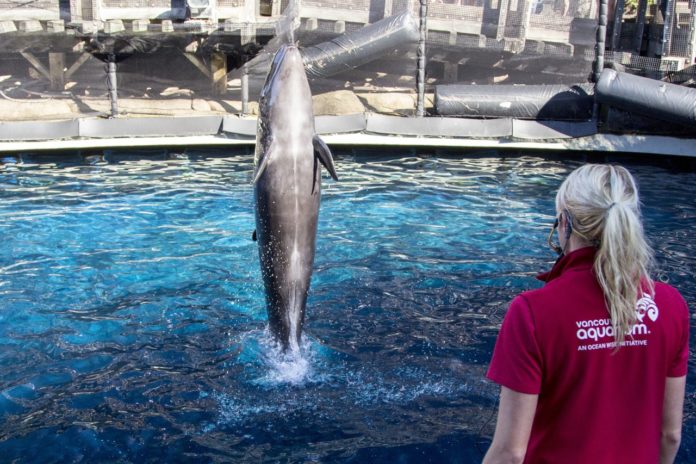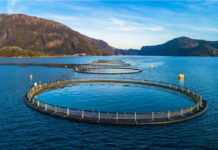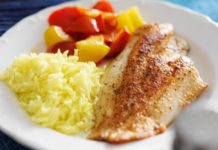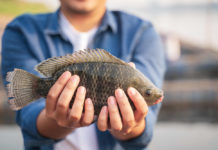If you’re a regular seafood consumer, you may have noticed the Ocean Wise label on items at grocery stores or on restaurant menus. This isn’t your average seafood label—it represents a global conservation organization with a multi-pronged approach to promoting sustainable seafood practices. Ocean Wise is backed by the Vancouver Aquarium, with their overarching objective to shift demand in the seafood market to sustainable fish.
But, for sustainability practices to have any real effect, it’s not just up to them—consumers need to start making better choices. Feel good about the decisions you make when shopping or dining out by choosing fish options with the Ocean Wise label.
Ocean Wise’s Sustainable Initiatives

With over 700 partners across Canada, Ocean Wise directs consumers to environmentally-friendly fish by making it easy to identify sustainable seafood choices. Partners include restaurants, markets, suppliers, culinary schools and retailers.
In order to have the greatest impact on the demand for certain seafood species, Ocean Wise promotes a number of initiatives. These initiatives include shoreline cleanups, marine mammal rescue, research, education and a commitment to working with retail partners to distribute Ocean Wise approved seafood.
In their quest to encourage the consumption of sustainable seafood, Ocean Wise is careful to only certify seafood that meets the following criteria:
- The species is abundant and resilient to fishing pressures
- The fish have a comprehensive management plan based on up-to-date research
- The way the fish is harvested limits the bycatch of non-target and endangered fish species
- The process for harvesting the fish limits damage to marine or aquatic habitats and negative interactions with other species
Once the fish has been approved, the Ocean Wise label can be placed on packaging, restaurant menus, displayed in grocery stores and anywhere else that fish is sold. But what else does Ocean Wise do for the sustainability of seafood?
Shoreline Cleanup
The Great Canadian Shoreline Cleanup is an initiative of the Vancouver Aquarium and WWF-Canada that encourages Canadians to help keep their rivers, lakes and oceans clean. In 2017 alone, more than 1,800 cleanups took place across the country and 185,500 pounds of trash was collected throughout the year. If you wish to get involved and spearhead your own clean up effort, head to their website to find out more.
Education and Research

Ocean Wise recognizes that one of the best ways to get people on board with sustainable seafood practices is education. The organization offers public programs that allow participants to learn about sustainability from ocean experts. Ocean Wise also provides mobile programs for schools, online ocean literacy classes and hands-on service learning opportunities at shoreline clean-ups. Additionally, the organization funds research into habitats and animals to enhance their environmental conservation efforts.
To have more of a direct impact on the conservation of aquatic life, Ocean Wise’s AquaDopt program allows people to symbolically adopt sea animals. These adoptions help to care for the animals at the Vancouver Aquarium, and support conservation, research and education programs. Animals available for symbolic adoption include otters, killer whales, sea lions, beluga whales and seals.
Making a Difference
Ocean Wise goes above and beyond to make well-educated and research-backed decisions about what companies deserve their logo. By focusing on promoting fish that have been harvested responsibly, the organization can have a huge impact on the environment. However, Ocean Wise can only do so much to protect our oceans—they need us to do our part and buy seafood responsibly. So, the next time you see the Ocean Wise logo in the grocery store or on a restaurant menu, you can rest assured that your purchase is helping to protect aquatic life for years to come.
Want to learn more about choosing sustainable fish? Discover the most sustainable farmed fish to eat, or find out more about how your food choices impact the environment.
Photos Credits: Alex JW Robinson, UrbanFare, Dmitry Kovba
